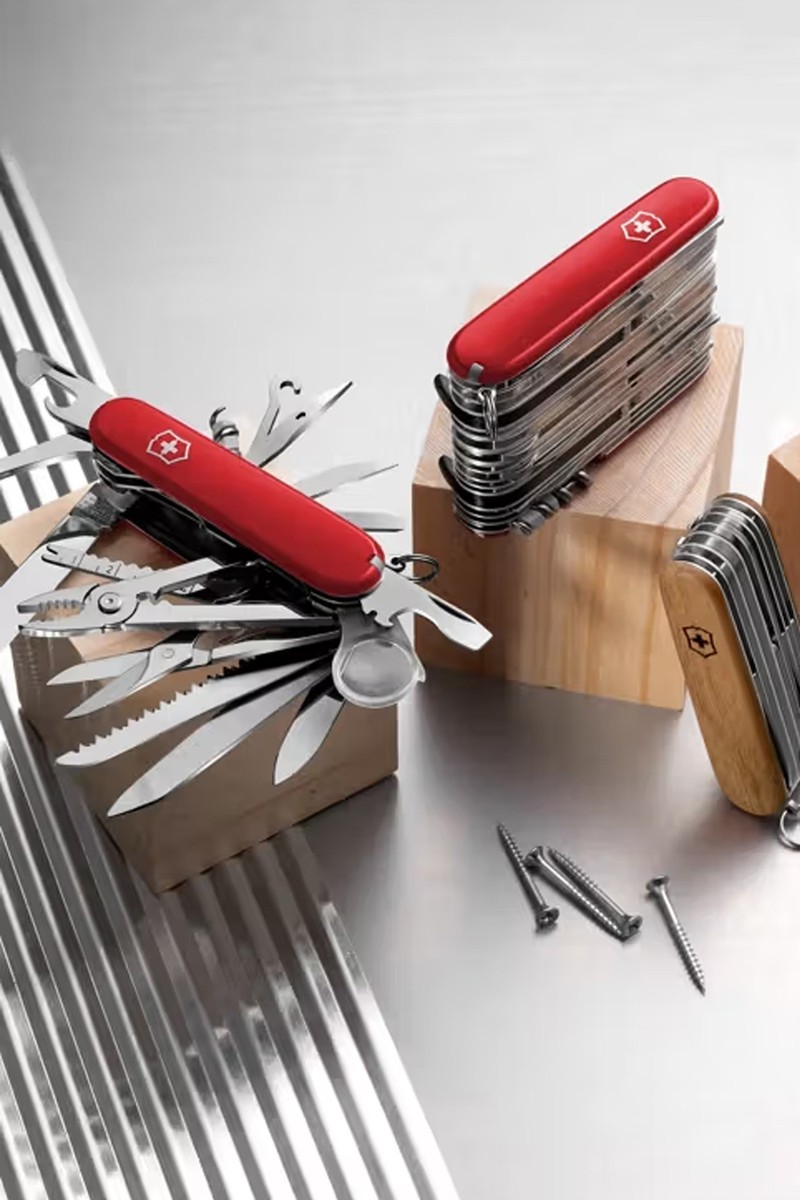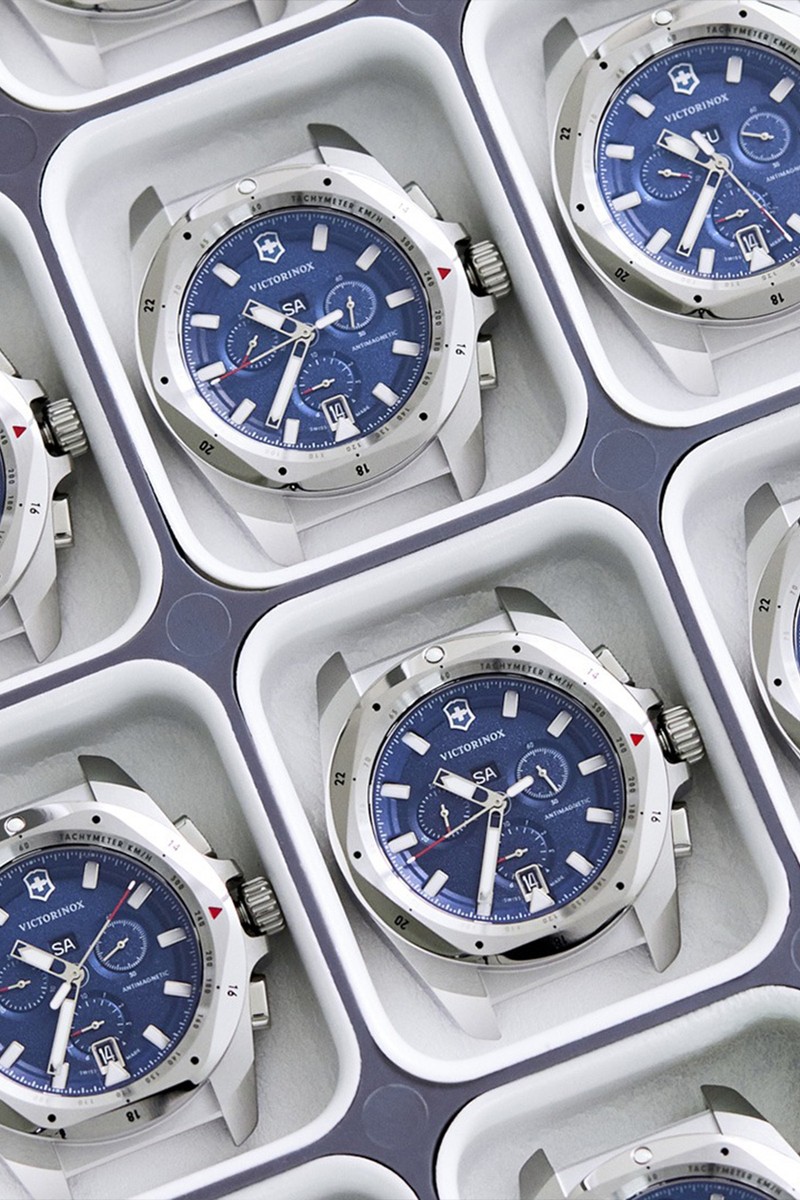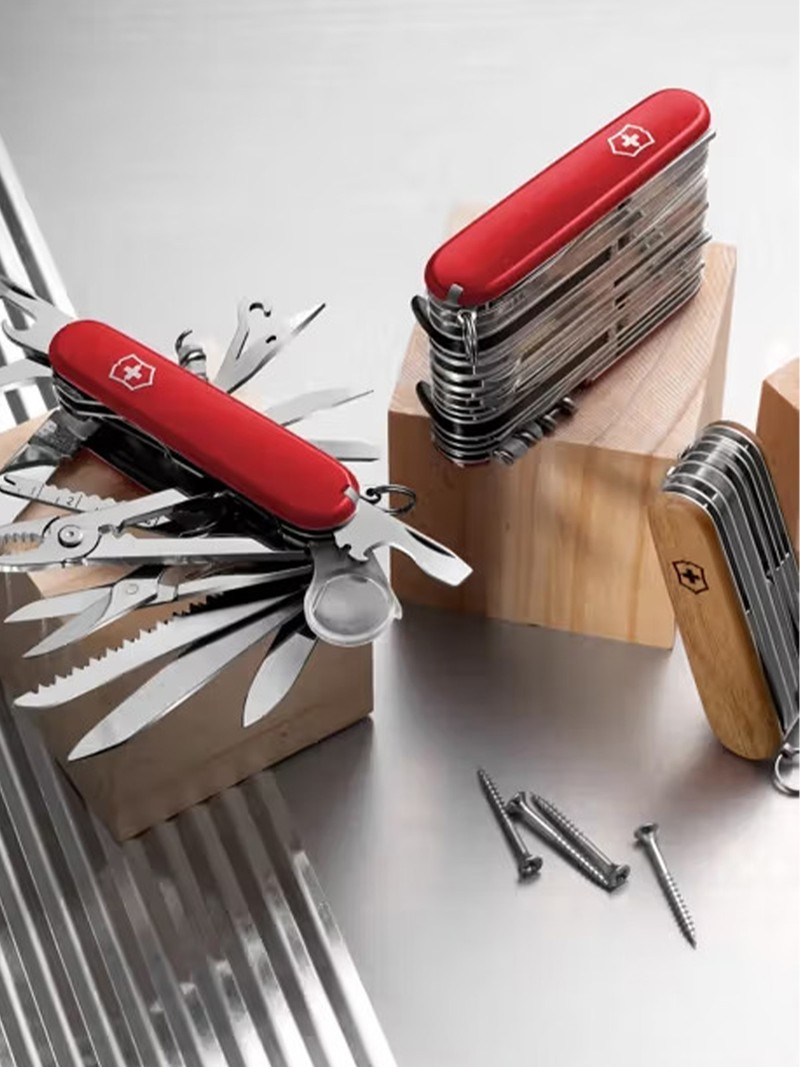
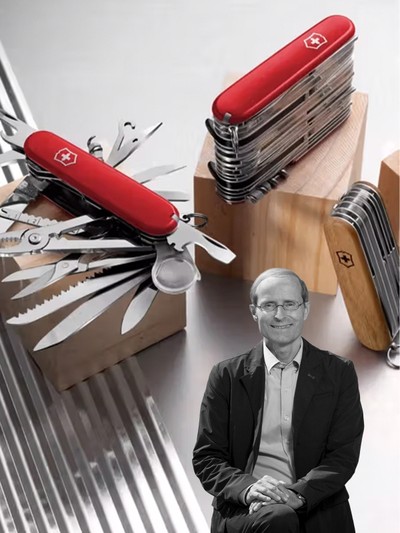
The CEO Series: Carl Elsener IV, Victorinox
What was it like growing up around the business you now lead, Carl?
Our family lived very close to the factory. We were in an old building on the other side of the street on the fourth floor. Downstairs was the packaging department and the quality control office, so the company was our playground. When our partner from England used to visit, my father always invited us to say hello, then we had to sit in a corner and be quiet. When we had staff parties, he invited us to say a poem in front of the employees or play the flute. We realised then that we are a big family, and these people are important for our success.
Talk us through your journey from there to becoming CEO in 2007…
I formally joined Victorinox in 1978 and learned leadership from the ground up. In 1985, I began working with our US distributor, and attending advanced management and leadership programmes. I spent 34 years working alongside my father in the same office. This was pivotal. He exemplified the principles of respect, trust, humility and responsibility. His leadership philosophy – valuing people, fostering customer relationships, producing outstanding products, and investing in the brand – shaped my approach.
Are there any extra tensions around succession in a family business?
In my 47 years with Victorinox, we have never had any problems. My father and my mother always set an example. We could always sense that our father was there for the company, not the company for him. I was the oldest of the boys, and after me I had three sisters, so there was a big gap to the next boy. My sisters got married and had children, so they were not involved so much at that time. My second brother, Peter, is very introverted and his hobby is computers, so he started to work in our IT department, where he could bring his passion alive. My next brother, Robert, is more than ten years younger than me. He served an apprenticeship as a tool maker, then he became a machine engineer, and he is responsible now for all the quality management and customer service.
So no one wanted to defect and become a rockstar?
No, but one of my sisters became a kindergarten teacher! In total we are 11 children – seven sisters and four brothers – and nine live in this valley here. One lives in the neighbouring canton, and one in the US.
How does being a family business affect Victorinox?
Being a family business deeply shapes the character and culture of Victorinox. It means that we think and act with a long-term perspective. Our decisions are guided by the desire to build something lasting, not just for ourselves, but for our employees, customers and the wider community. We see Victorinox not only as a company, but as a legacy and a living community. This spirit extends to our employees, many of whom see themselves as part of something bigger: a large family united by shared values and a common purpose. It creates an environment where people feel connected, motivated, and proud to contribute to the success of the whole.
Tell us about how Victorinox’s foundation works…
Christian values have always been important, and I think they influenced our openness to establish a company foundation and put our shares into this foundation. You can never change a foundation. A foundation is there forever, so our family has consciously given up all the money that Victorinox makes forever. We can never take dividends. We cannot sell the company. Through this foundation, we have decided that the sustainable long-term development of the company and financial independence are the highest priorities.
What have been the toughest challenges in your time at Victorinox?
Global crises such as 9/11 and the Covid pandemic posed major tests. Both events brought tremendous uncertainty. After 9/11, sales dropped by 30% and yet we managed to keep all of our staff employed. We only survived thanks to the cash reserves, while our HR department got creative because we did not have enough work. We went to bigger companies in the neighbourhood, and asked them if they needed temporary support. We lent 60 people for several months to these companies then, when the situation improved, all employees came back.
What’s the lesson you’ve taken from these challenges?
That resilience – both personal and organisational – depends on maintaining strong reserves and high liquidity. As the old saying goes, ‘Save during times of plenty, so that you have enough in times of need.’ This philosophy has helped us weather crises effectively. In challenging times, it is crucial to strike a careful balance between necessary cost-saving measures and preparing for the future. For me, resilience also means staying agile and embracing change. As a Chinese proverb wisely says, ‘When the winds of change blow, some build walls, others build windmills.’ It’s about accepting change, adapting swiftly, and remaining relevant to our consumers. Even in the most difficult times, we must invest in the future and think long term.
How are you adapting to the emergence of AI?
We see AI as an enabler of human potential. That's why we train our employees to use AI tools – for example, Microsoft Copilot is being rolled out company wide. AI is making a tangible impact on content creation, be it written copy, images, videos or even e-learning modules. In customer service, AI supports our teams with real-time answer suggestions. Our software development teams leverage AI to streamline coding and testing processes. AI also plays a growing role in production and quality control, helping us detect anomalies earlier and maintain the highest standards of precision. Ultimately, it gives our experts more space to focus on what truly defines our brand: precision, intuition and craftsmanship.
What’s your approach to marketing?
Our marketing approach is rooted in authenticity. We don’t invent a story; we tell the one we’ve lived since 1884. As the makers of the Original Swiss Army Knife, we live up to our legacy by helping people feel prepared. We believe being prepared makes life better, and we see our products as brand ambassadors. Marketing’s role is to make that meaning visible and relatable, without ever losing authenticity. We adapt our messaging for different global markets, while the core of the brand remains unchanged, respecting cultural nuances. The essence stays Swiss, but our voice is locally tuned.
Creatively, where do you draw inspiration from?
While the Swiss Army Knife is deeply rooted in tradition, we continuously develop it with new functions, materials and designs. Much of our creative drive comes from listening closely to our customers. For example, the Rescue Tool originated from a suggestion by our company's fire brigade. The miniature screwdriver for eyeglasses, cleverly integrated into the corkscrew, was inspired by a spontaneous idea from one of our loyal customers. There are no limits to optimisation.
What is success to you?
For me, success is not measured by short-term achievements or financial figures alone. It is about building something lasting. Something that creates value not just for today, but for future generations. Over time, my definition of success has evolved: in my younger years, I associated it more with growth and reaching tangible milestones. Today, I see it more in the impact we have on our employees, our customers, our community and the environment. It’s about fostering a company culture where people feel inspired and valued, and where we can pass on a healthy, responsible business to the next generation.
As a leader, what do you see as your strengths?
One of my greatest strengths is fostering a strong sense of teamwork and collaboration. I am convinced that real success is never the result of individual effort alone; it’s the outcome of committed people working together towards a common goal. Ten years ago, we had five companies, each with its own CEO. The CEO was independent. They reported to me, but they ran their company. I always told them, ‘You need to work much closer together. Customers don't want to have a yellow, a green and a blue brand. We want to be one team and one brand.’ My wife suggested to me, why don't we organise around one CEO, one product team, one marketing team, and one sales team? We decided to make this big change, taking the company from a divisional one to a functional one. With that many employees, it was a big challenge, but I'm very happy that we did it.
What’s the one bit of advice you’d give anyone looking to go into business?
Focus on building something meaningful and lasting. Something that creates real value for others. Success is not only about having a great idea; it’s about perseverance, humility, and a genuine passion for what you do.
Finally, Carl, if you were to recommend one product from Victorinox, which would it be?
Undoubtedly, the classic Swiss Army Knife. It is much more than just a tool. It represents independence, curiosity, and the joy of being resourceful. It’s a life companion, whether you are hiking, travelling, moving, camping, or simply facing everyday challenges. It fits in your pocket, but it holds a much deeper meaning: it symbolises the idea that with the right preparation, you can face whatever life brings your way. And perhaps that’s exactly what I would wish to pass on to a young person today: you are ready for whatever comes next.
Visit Victorinox.com
DISCLAIMER: We endeavour to always credit the correct original source of every image we use. If you think a credit may be incorrect, please contact us at [email protected].
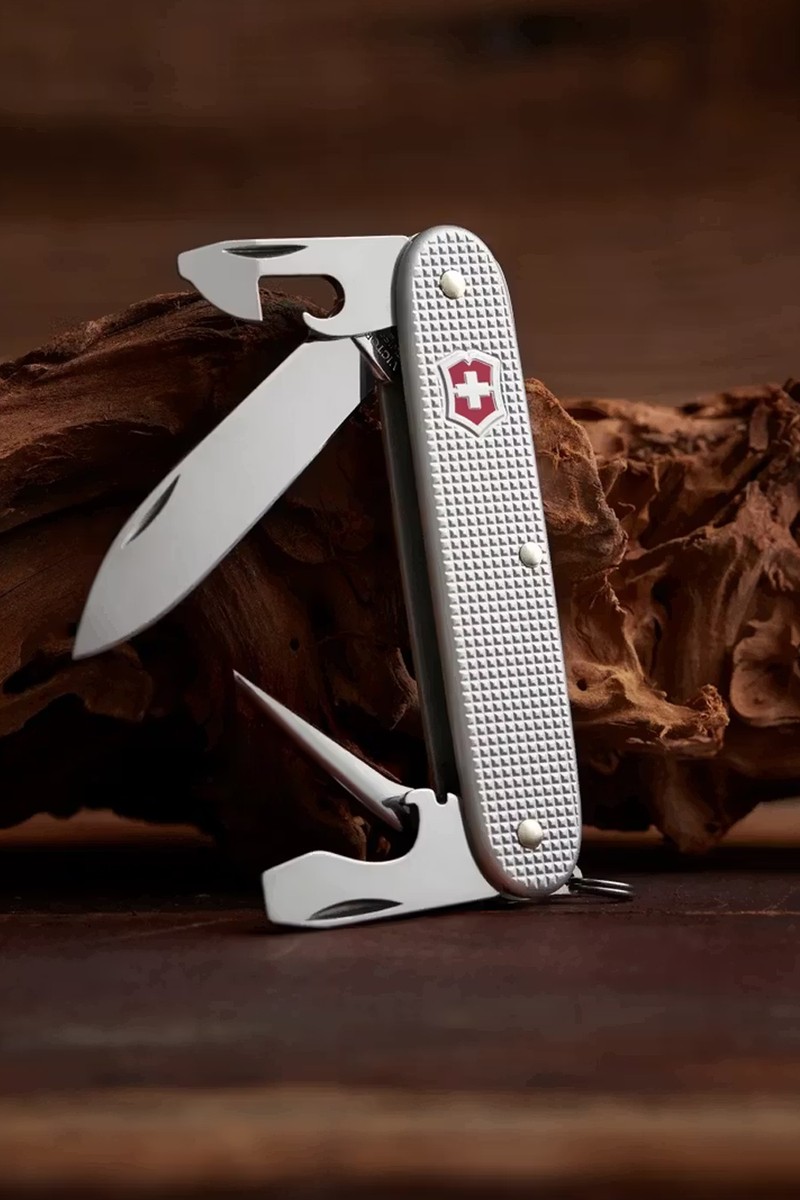
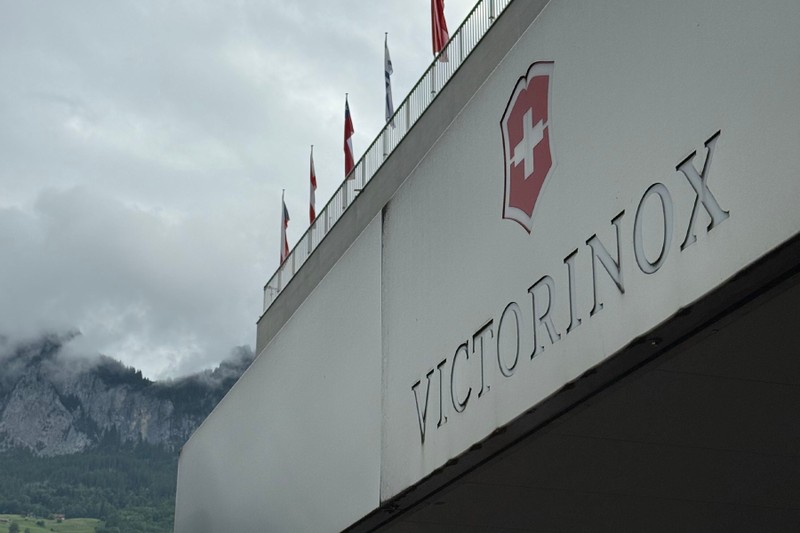
/https%3A%2F%2Fslman.com%2Fsites%2Fslman%2Ffiles%2Farticles%2F2025%2F07%2F2sl-man-ceo-series-victorinox.jpg?itok=dQGyc3zw)
